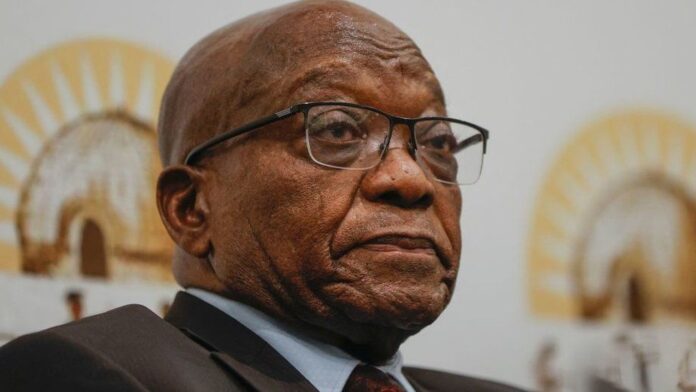In a surprising turn of events, former South African President Jacob Zuma has been spared from returning to prison, causing a stir both within the nation and beyond its borders. The decision, attributed to the need to mitigate prison overcrowding, comes after a series of legal battles and conflicting rulings.
Zuma, who had initially been sentenced to 15 months for contempt of court, had surrendered himself to authorities, only to later be released on medical parole, a move that was subsequently deemed illegal by the courts. This time, Justice Minister Ronald Lamola announced that Zuma had been granted remission to address the burgeoning issue of overcrowding in the country’s correctional facilities. The mechanism of remission seeks to alleviate the burden on the penal system by releasing those deemed low-risk offenders.
The former president’s rollercoaster journey through the justice system took another twist when he reported to the Estcourt Correctional Facility in his home province of KwaZulu-Natal. Surprisingly, his stay was short-lived, as he was admitted and released within the span of an hour. The remission status, a part of a broader process initiated by President Cyril Ramaphosa in April, has been extended to over 9,000 inmates.
However, the announcement hasn’t escaped controversy. South Africa’s main opposition party, the Democratic Alliance, has expressed its intention to challenge the remission granted to Zuma. Conversely, the ruling African National Congress (ANC) in KwaZulu-Natal has applauded the decision, asserting that it serves the nation’s best interests.

The public’s reaction to this latest twist in the saga has been far from uniform. Many South Africans are urging the government to direct its attention to pressing matters such as persistent power outages, soaring crime rates, widespread poverty, and escalating youth unemployment. On the other side of the spectrum, there are those who firmly believe that Zuma should fulfill his prison sentence as originally mandated.
Zuma’s incarceration in 2021 had sparked widespread protests and riots, resulting in the tragic loss of more than 350 lives. His imprisonment had been a consequence of his refusal to testify before a panel investigating allegations of financial corruption and cronyism during his tenure as president. Yet, he was controversially released on medical parole just two months into his sentence. An appeals court later ruled that this release was unlawfully granted, ordering Zuma to return to prison to serve the remainder of his term. Despite subsequent attempts to overturn this decision, the constitutional court upheld the ruling, leading to the complex situation unfolding today.
As the nation grapples with this polarizing decision, it becomes evident that the Zuma saga has transcended mere legal matters, evolving into a reflection of broader societal concerns. The debate now encompasses issues ranging from the administration of justice to the prioritization of pressing national problems. With emotions running high and opinions diverging, the controversy surrounding Zuma’s fate seems poised to persist, leaving South Africa at an important crossroads in its ongoing journey toward justice and social progress.





